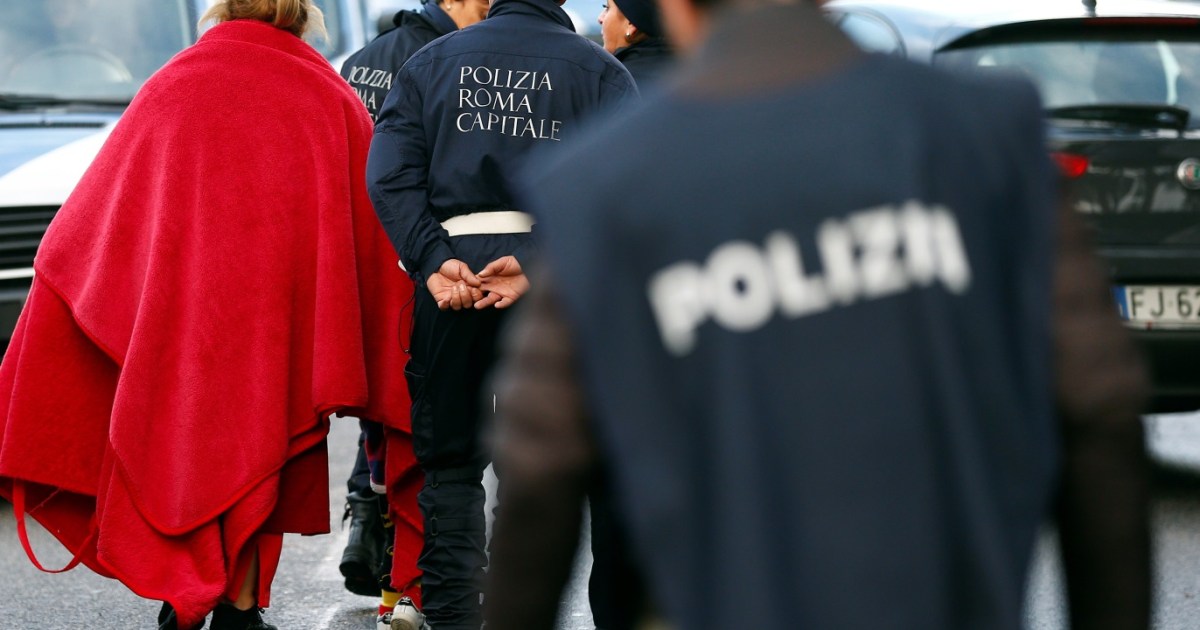You can only agree, a hand that stretches with a bundle of cash at a time when you are in debt, and with it a phone message saying "You can count on us", but after months the "generous donor" returns claiming its dues with annual interest that may reach 1000% and under the threat of arms if The need arises.
In this way, the French newspaper Le Monde said that criminal organizations in Italy have taken advantage of the health crisis to tighten their grip on some companies that face difficulties and even individuals who provide them with instant cash loans, compensating them for the strict conditions of the banks and their slow procedures.
In an investigation by Thomas Santorins, the newspaper explains that since the advent of "Covid-19" in Italy, and these "benevolent" people who depend on the mafia, they occupy the vicinity of shops and village squares, because "moneylenders do not reach their peak except in periods of crisis, economic stagnation or disasters." Naturalism, "notes Prosecutor Alessandra Dolce, head of the Mafia Fighting Branch in Milan.
Dolce believes that the Corona epidemic represented a unique opportunity to strengthen the strength of organized crime organizations in the heart of prosperous Italy that was hardest hit by the epidemic, noting that the staff of "Ndraghita", a powerful mafia in the Calabria region, were the first to provide money, in the form of loans up to 300 thousand euros, for entrepreneurs on the verge of bankruptcy.
Whatever the criminal organization - according to the investigation - these "benevolent" people throughout Italy adapt to the needs and know how to become an indispensable party, such as the brother of the prison head who was seen organizing the distribution of food baskets to the poorest families, but the recipients of this aid Food turned into debtors of the donor's family.
According to the Italian Ministry of the Interior, usury is the only criminal activity that increased during the epidemic by 9.6% at the end of last March, and also increased - according to the Rome Chamber of Commerce - the risk of usury by 50% last May, supported by the partial resumption of commercial activities.
ATM machines
The Milan prosecutor believes that "thanks to the profits of drug trafficking, organized crime groups are replacing banks and the state and responding immediately to the needs of the needy or companies facing difficulties", expressing his concern to see "successful businessmen in tourism, hotels or construction, approaching for the first time In their lives the mafia groups "that have also crept into the Lombardy health products market, especially importing masks and managing hospital waste, according to ongoing investigations.
"The use of this type of illicit financing is largely due to lack of confidence in the failed banking system," said Luigi Como, director of SOS Impresa to help companies under the control of moneylenders. The country is slow and insufficient if the banks refuse it because of its strict standards, according to trade unions.
When the first bills are paid - according to the author - the guardian angel turns into a devil, who passes into the store every day, and he knows the books of accounts and the names of the children of his debtors, and so Como says that "usury is a psychological crime", especially since the victim becomes the executioner of his executioner, as in Stockholm syndrome. (Stockholm syndrome).
The report pointed out that only a few victims are ready to expose these lenders affiliated with the most intimidating organizations in the country, knowing that pumping dirty money estimated at 30 billion euros annually in Italy falls under the control of local mafia organizations.
The investigation warned that long-term blackmail is practiced in the country, as General Giuseppe Governor, head of the Anti-Mafia Investigations Directorate recalls that "blackmail has started to develop in Sicilian society and economy since the end of the nineteenth century, especially in the citrus trade."
Edit the castle
The report pointed out that the "liberation of the castle" operation in the city of Polystina, in which 22 members of COSCA were arrested, a family of the Ndrangheta family specializing in money-raising and extortion locally, was an important lesson.
And this process came - as the arrest warrant says - after the economy of this small city gradually shifted to the financiers of this family, as it became impossible to open a business without their consent and profit from any trade without paying them money.
The investigation started from the case of the marble worker Massimo, who the bank refused to deal with while he was suffering from financial difficulties, so he was contacted in April 2013 by the accountant Vincent Lu Fu who gave him a loan of 13 thousand euros in cash to be paid 40 thousand euros, then threatening him Soon after seizing his tools he works with, then angrily tells him, "If you don't pay, we'll put you in a box and throw you into the sea." Thus, the place of the poor marble worker who has no exit is seized, the writer says.
The writer concludes that it is necessary for a long period before being able to assess the consequences of using usury in the first half of 2020 in Polistena as anywhere else, especially that if any individual even gets a few euros, it will cost him to provide services such as providing a cache of weapons or sharing In drug trafficking.

